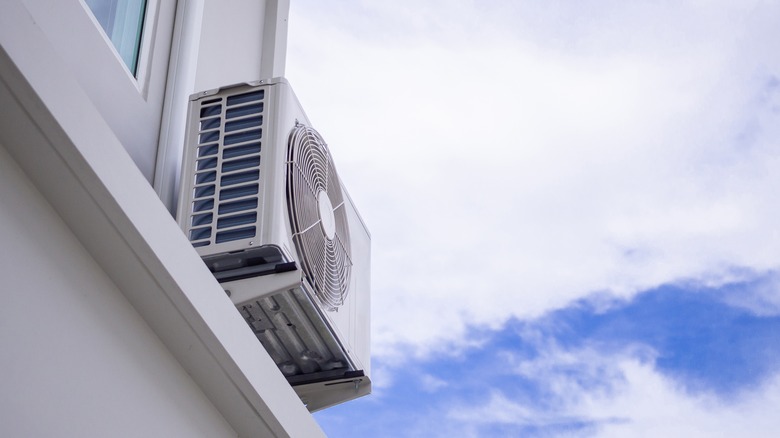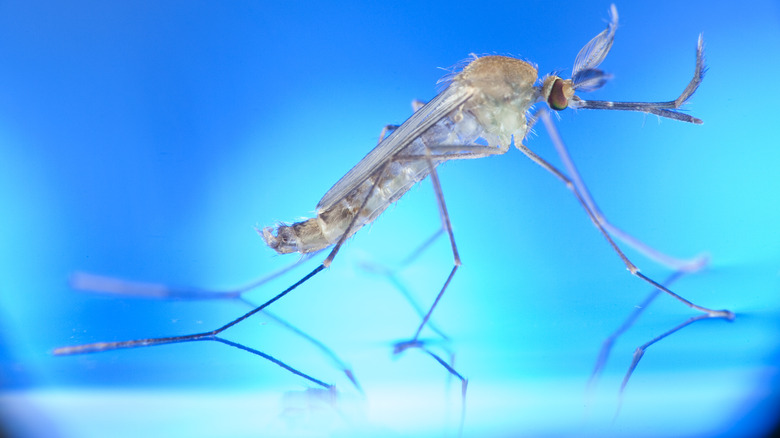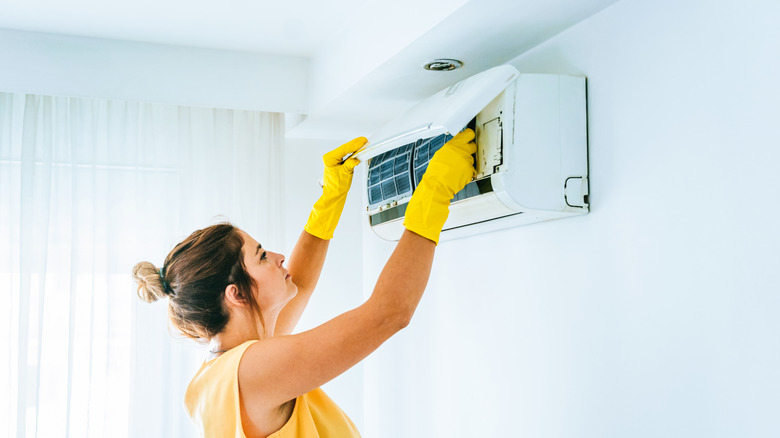Is Your Air Conditioner Inviting Mosquitoes Inside Your Home? Here's What To Know
If you live in a region with hot, muggy summers, air conditioners are indispensable. They cool your living spaces, they do away with the unbearable humidity, and they help suppress mosquito activity in the home. The cool, dry air A/Cs generate turns your home into a forbidding environment for these moisture-loving, disease-spreading pests. A/Cs also deter mosquitoes indirectly, since most users will close their doors and windows to keep the hot outdoor air out and minimize energy waste while running the unit. Doing so denies mosquitoes entry to your living quarters. But if you've ever wondered how mosquitoes still enter your air-conditioned space, the answer may come as an unpleasant surprise.
Yes, mosquitoes are not as active when the cooling mode is on. Since they prefer temperatures of 80 degrees Fahrenheit or above, they're unlikely to cause a major nuisance when you're using the air conditioner, especially if it's on full blast. But what you probably don't know is that they may be hiding in the very unit you thought was keeping you safe, waiting for the time when you choose a warmer setting. Despite being less of a threat when you run the appliance, these annoying insects make the A/C a cozy home for themselves. Here's why mosquitoes are so drawn to air conditioners and what you can do to keep them away for good.
Why mosquitoes like air conditioners
Mosquitoes may hate the environment air conditioners create in your home, but they love to get into the unit itself. This paradox has a simple explanation — air conditioners are a source of moisture, which female mosquitoes need to breed. Air conditioners effectively cool and dehumidify the room's air by running hot, humid air over chilled evaporator coils. These coils quickly lower the air temperature when the refrigerant inside the coils picks up the heat. In the process, the coils also cause this moisture to condense. Air conditioners are equipped with special drains that remove the excess water from the unit. However, these drains often get clogged with debris. Even without obstructions, the condensate may accumulate faster than the drain lets it out. Moreover, some air conditioner types come with a pan that collects the condensate. In each of these scenarios, the air conditioner is left with standing water. Over time, this water becomes stagnant and female mosquitoes may lay their eggs.
Unfortunately, the same female mosquitoes that can turn an air conditioner into a breeding ground are also the ones that bite you – the males don't bite. Female mosquitoes are after blood because it's an important source of protein for them, especially when they're laying eggs. Keeping these female mosquitoes out of your air conditioner is a good first step to ensuring that you and your family don't sustain annoying and sometimes illness-spreading bites.
How to keep mosquitoes out of air conditioners (and your home)
To keep mosquitoes out of your air conditioner, you'll have to eliminate the source of standing water inside the unit. How you do this depends on what type of air conditioner you have. If you have a window unit, chances are the device is designed to keep some of the condensation in so it can be used to cool the hot condensing coils. If you notice that mosquitoes are living inside the unit, you can find the drain plug and remove the standing water, but note that the air conditioner may lose some of its efficiency. The same method works for portable air conditioners, which come with a drain port you can unplug to let the water out.
On the other hand, if you have a ductless mini-split air conditioner, you'll have a drain pipe that collects and removes the condensate. You can monitor this line for blockages if you feel that the water is getting trapped and inviting mosquitoes into the unit. Alternatively, you can get an HVAC professional to install a condensate pump to help drain the air conditioner more effectively. And if you cool your home with a central A/C, the mosquitoes shouldn't be such a problem because the evaporator unit is located outdoors. Even so, you can make sure that mosquitoes don't make a breeding ground in your yard by checking the drain line for obstructions and unclogging it when needed.


